CASH COW
Ten Myths about the Dairy Industry
Élise Desaulniers
@edesaulniers
Other
Other ?
The emotional attachment to milk is a victory for an industry we ought to challenge seriously.
Normal,
Natural,
Necessary
Milk consumption became possible with the advent of agriculture and animal domestication over ten thousand years ago
- -200 000 : homo sapiens in Africa
- -13 000 : first domesticated goat
- -8 000 : first domesticated auroch
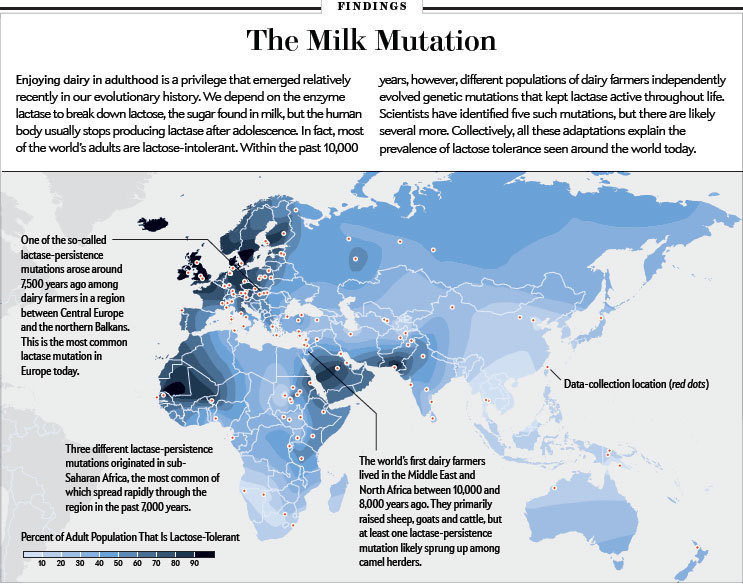
John Hawks, "Still Evolving (After All These Years)", Scientific American 311, 86 - 91 (2014)
Today, a mere 25 percent of the global population exhibits
lactase persistence

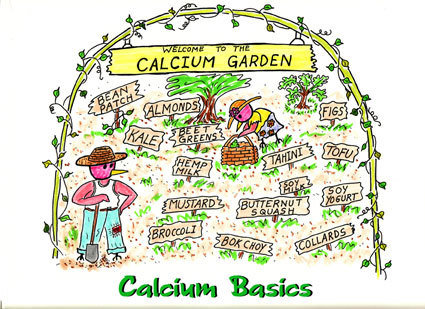
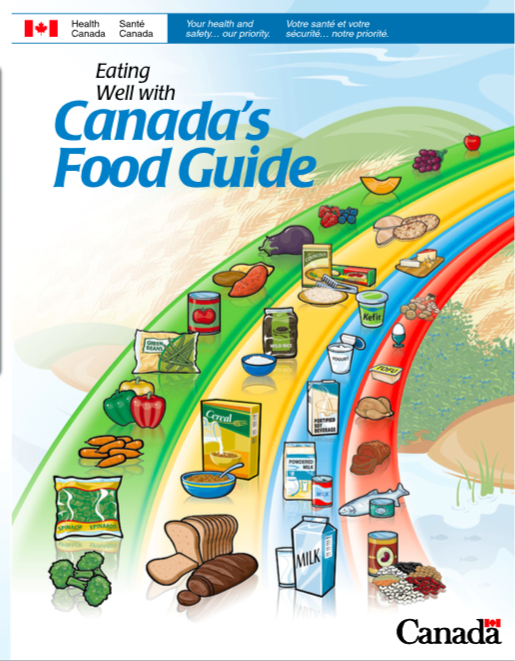
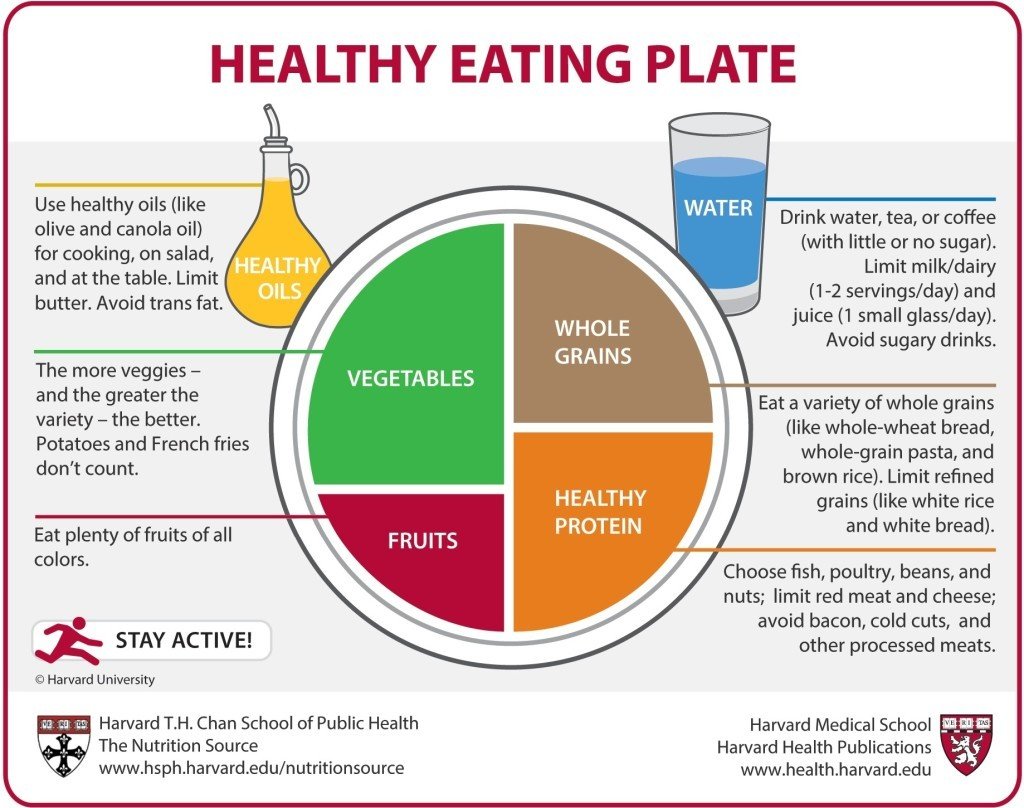
Yet dairy is given a prominent place despite evidence that high intakes of dairy products do not reduce the risk of osteoporosis and may increase the risk of some chronic diseases.
Harvard School of Public Health
Scientific articles funded by beverage manufacturers are four to eight times more likely to be favorable to the product than independent articles. No study funded by the industry reached conclusions that went against its interests.
Lesser and al., 2007
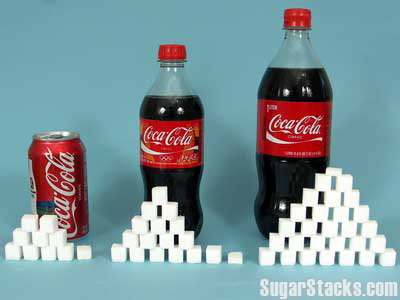
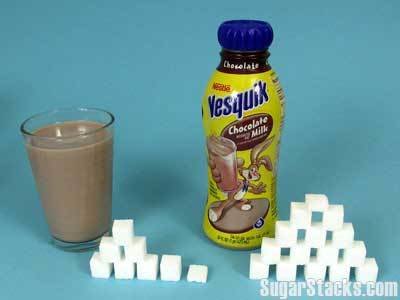
the daily effort now required from a cow is on par with jogging six or more hours a day or competing in the Tour de France.
John Webster, professor emeritus at the Bristol Veterinary School of Medicine in the United kingdom.
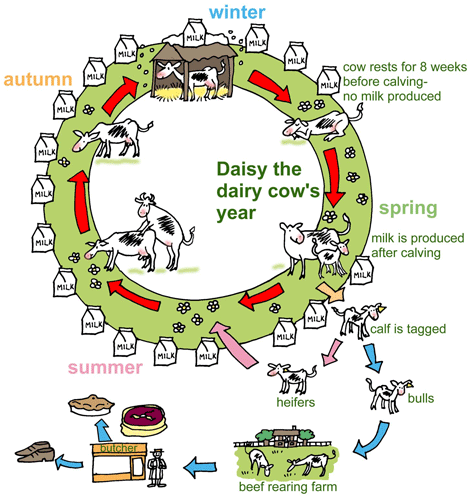
We don't need an undercover investigation to know that a large number of dairy cows spend their lives chained, suffer from being separated from their calves shortly after birth, endure inflamed udders and bleeding hoofs, and inevitably end up at the slaughterhouse.
When we’re about to consume milk, even if we know it has been produced under unacceptable conditions, we can still tell ourselves that it could have been produced without any suffering. This is obviously a very bad argument. But I think that this mere possibility is enough for us to stop feeling guilty.
Martin Gibert, Philosopher
Bastian et al., 2012
Animals considered
appropriate for consumption are rated as having less mind
than animals considered inappropriate

In many organic farms there is little difference in approach between the methods used to rear dairy calves and those used on non-organic farms
Canada Organic Agriculture Centre
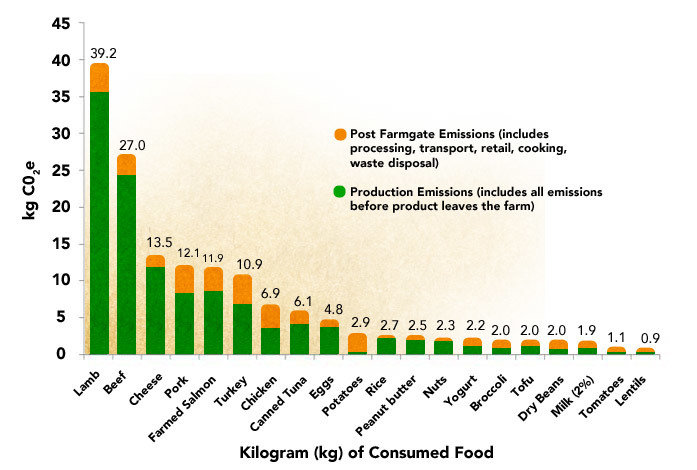
Environmental Working Group, 2011
the water footprint of one liter of cow’s milk is more than three times that of soymilk: 1,050 liters compared to 297 liters.
A. Ertug Ercin et al., 2012
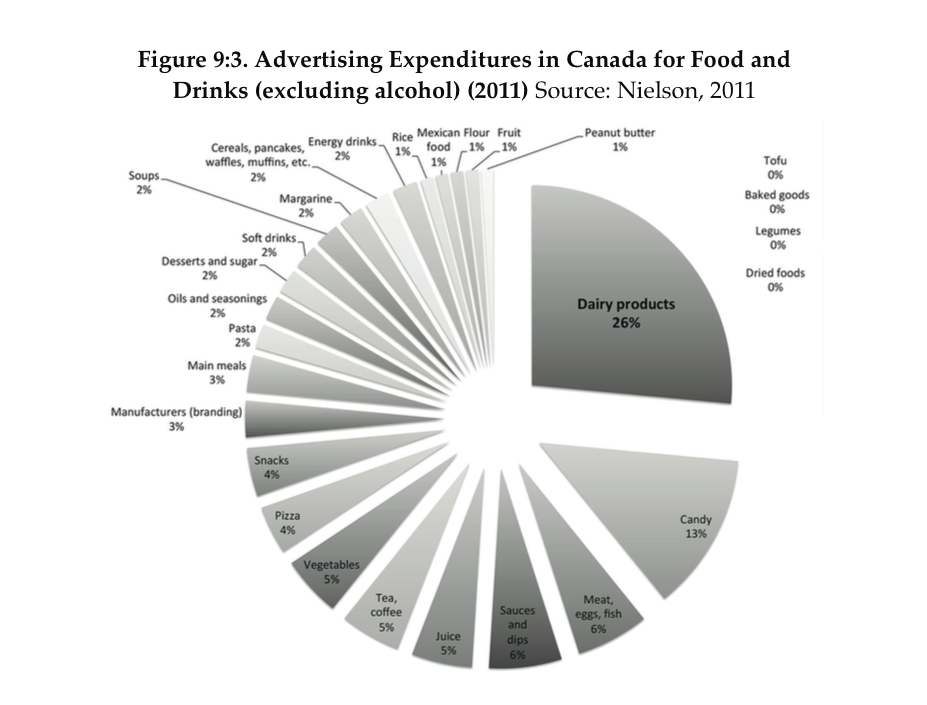
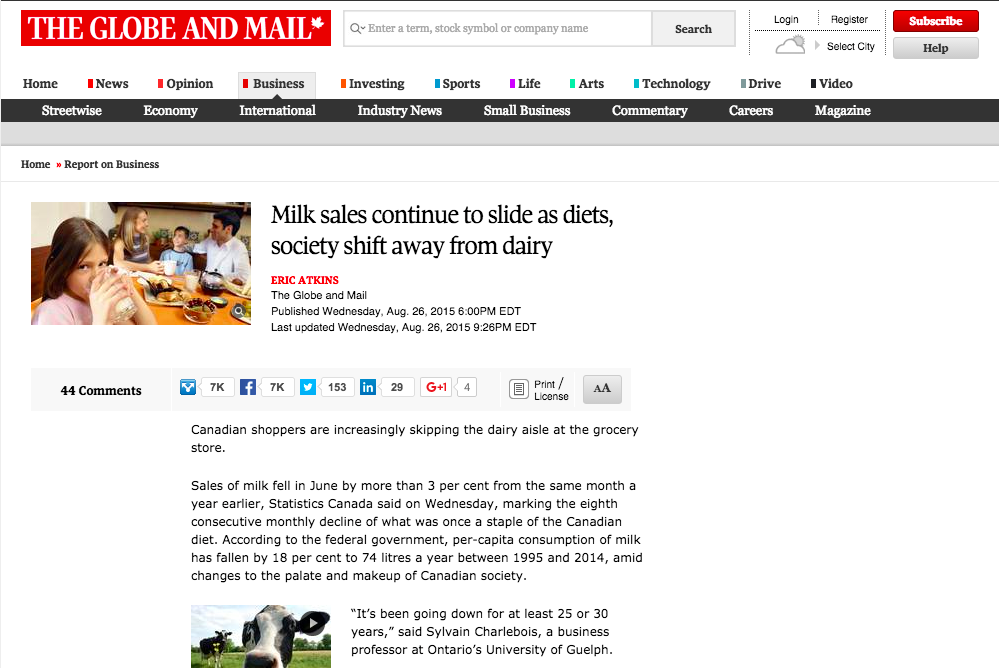
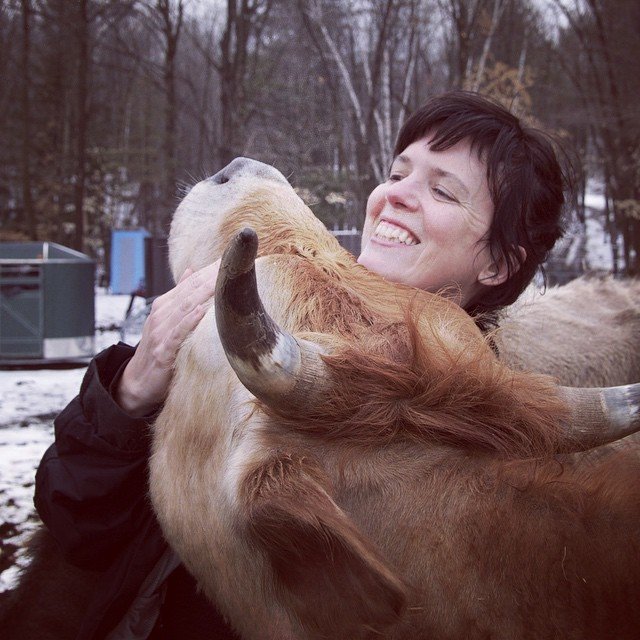
ÉLISE DESAULNIERS
@edesaulniers
